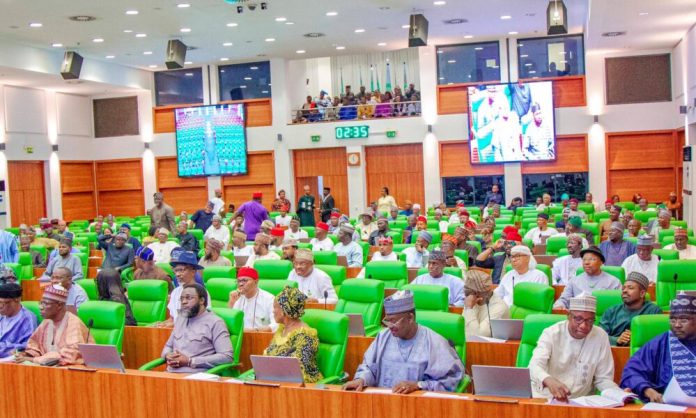By Paul Effiong, Abuja
In what seems to be a swift move to address delay in getting justice in Nigeria, House of Representatives is set to tackle the factors that have contributed to the snail speed of justice delivery system.
These resolutions followed the adoption of a motion titled, “The Need to Review Nigeria’s Justice and Judicial System in Order To Restore Public Trust in the Judiciary and Address the delay in providing Justice” sponsored by Ganiyu Adele Ayuba.
Ayuba explained that the bid to restore the confidence of the common man in the judiciary should be of concern to paliament.
In his lead debate, he pointed out that the judiciary is another branch of government constitutionally saddled with the responsibility of prompt dispensation of justice, as well as interpreting the laws made by the legislature.
He emphasised that judicial powers are constitutionally vested in various categories of courts legally created by the Constitution of the Federal Republic of Nigeria, Acts of the National Assembly and laws of different State Houses of Assembly in the country.
To this end, the lawmaker also reminded his colleagues that one of the elements of fair hearing as enshrined in Section 36(1) of the Constitution of the Federal Republic of Nigeria 1999 (as amended) is the prompt determination of civil rights and obligations of any person or authority within reasonable time by courts or tribunals established by law.
He informed that the House is also aware that the constitution introduced provisions for quick dispensation of justice, establishing a time frame for election matters and making the Court of Appeal the final court (in some cases).
The House expressed worry that delay in judicial administration is of concern and gradually undermining the public’s trust in the judiciary.
Lawmakers, who contributed during the debate, also expressed displeasure against the delay in the justice process, stating that in some states, cases in trial courts that should be resolved within months last four to five years before judgement is delivered, especially long-term detention of suspects, prolonged chieftaincy disputes and unresolved commercial litigation, which pose significant challenges to democratic and economic progress.
The House said the public’s confidence in the court system may be damaged if immediate action is not taken to address the backlog, which could force people to take the law into their hands.
In his contributions, the Deputy Speaker, Benjamain Kalu blamed the delay in justice on the congestion of Nigeria Correctional Services, NCS, facilities across the country.
He equally informed that the Committee on Constitutional Review will address issues bordering on speedy justice delivery instead of forming another committee on the matter.
Consequently, the House referred the matter to the Committee on Constitution Review for consideration and was asked to report back in four weeks for more legislative action.





